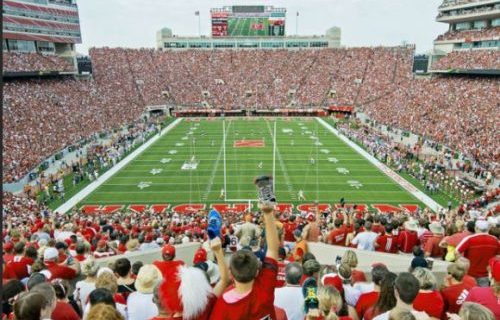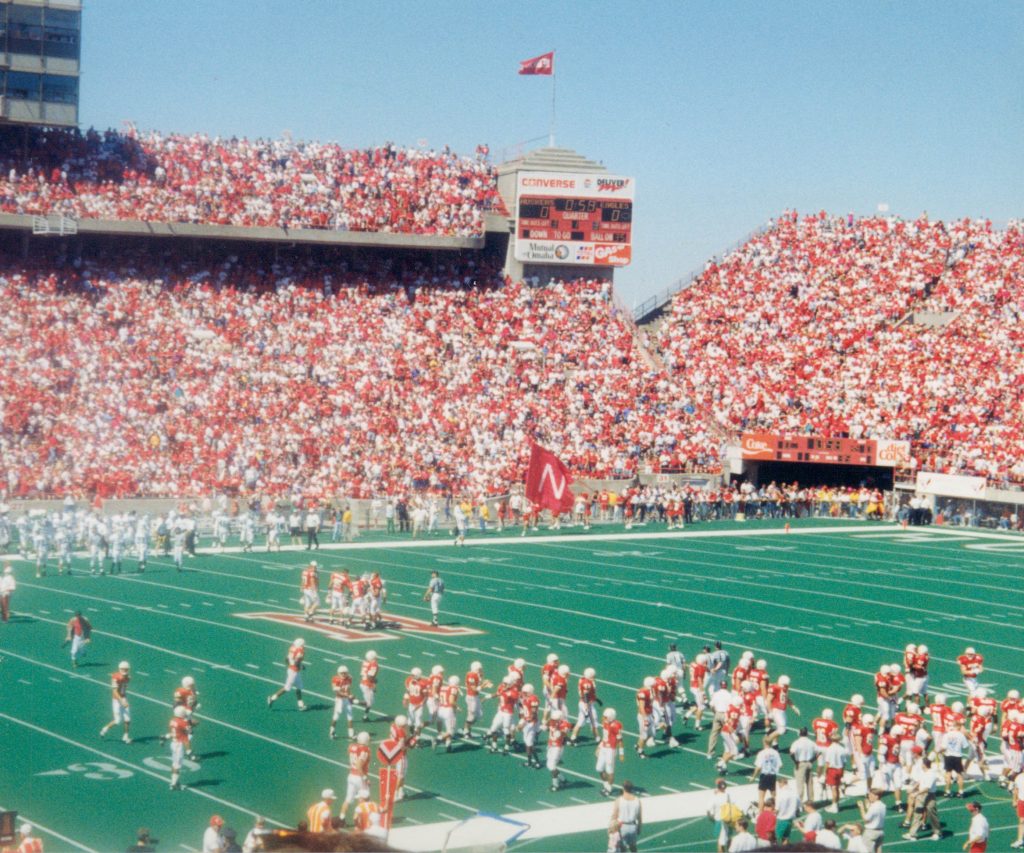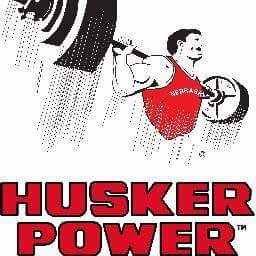Anatomy of an Era: Lance Gray, Part 2

Excerpted from Chapter 67, No Place Like Nebraska: Anatomy of an Era, Vol. 2 by Paul Koch
Anatomy of an Era: Lance Gray, Part 2
Q: What about Charlie McBride?
Lance Gray: Oh geez, he was the greatest guy in the world. Marvelous motivator and one of those things where he would give a pep talk before the game, but down to earth. I remember sitting on the sideline, it was make or break and everybody’s almost in tears in the last Orange Bowl -where we ended up losing 18-16- everybody’s sitting down and he just looks over and says, “What do you think, kid? It’s gonna be alright. Whatever happens out there, we’re gonna be alright.” That was his philosophy, because he was absolutely a great inspiration and motivator. We were sitting there before the kick and you just knew that whatever happened, that everything was going to be alright.
Q: Was that your last game, Lance? That ’94 Orange Bowl versus Florida State?
LG: Last game. And actually, my parents lived down there in Miami at the time, just down the street from there they lived and my whole family was there: aunts, uncles, cousins. It was a great experience.
Q: That’s a tough way to go out, winning the game though they had more points.
LG: Ah, it was crazy.
Q: And what about Coach Osborne, any memorable occasions with him?
LG: I can’t say enough about the guy, really. One thing that stuck out to me was the best thing you could ever say about him was that he was fair. I’m trying to think of a one-on-one that he and I had…
Q: You never got called into his office?
LG: You know, we can’t talk about that. (laughs) My first time when I was moved over to offense and being a fullback, you’d run the plays in. And he read off this long play, then I took my mouthpiece out and said, ‘That’s a mouthful, Coach.’ He said, “Just run the play in, son!” I was trying to be funny, but he was all business. (laughs)
Q: A lot of guys say that, “He was fair.”
LG: Yeah, in all respects. Even though stories are different, he was always fair. And we had that one steam room in the north locker room and there’d be six or eight guys in there and he’d come in and talk to us like one of the guys, “How’s your studies? How are your classes?” And no matter what happened, if you screwed up the biggest play that day, dropped the biggest pass or screwed up the scrimmage, he wouldn’t hold it against you.
Then there’s Coach Osborne with us later on in the steam room and there’s Coach Osborne, not upset. He’d ask you about the rest of your life, “Are you going home for the holidays? Are you going to church this weekend? Do you have any tests coming up?” And I was like, ‘Two minutes ago you were so mad at me for dropping the damned ball, but here we are having a regular conversation.’ He was truly a leader, and he led at every level. And obviously, we had all kinds of personalities up there and all kinds of demographics and he was able to lead at every level. What an experience.
Q: Speaking of the diverse demographics, especially your senior year, it seemed like everyone really came together with a sense of unity. Where did that come from?

Available on Amazon.com
LG: It actually came from -and you could correlate this to the ‘Good to Great’ book- the year of 1989 was the ‘Year of the Linebacker’, watching those crazy Butkus tapes, full of piss and vinegar, and we had the mindset where, “We have to be linebackers on the field, we have to be linebackers off the field, always mad and ready to flip the switch.” But what happened over the course of years was it came from Osborne, and Coach was, “It’s okay to be good linebackers, but you don’t have to be linebackers off the field.”
And the trend was for unity. You just said “Unity.” That last season I was there, that was the new term: Unity. It stopped being the Nebraska guys, the big guys, the little guys. That stopped, and we started socializing with each other. Everybody was hanging out and everybody was having fun. Call it diversity or whatever the case, but we started to step away from that. And Nebraska hadn’t won a bowl game for a while. It had been a while since they’d won a bowl game, and then there was the whole Unity theme. And of course, I graduated and went on and they won the next two seasons, but what took us from good to great was that we had a lot of great individuals and great efforts, and slowly it became this marvelous team. I watched it after I graduated and said, ‘Holy shit, they’ve got their stuff together.’ The unity from ’93 as a team and whatever happened those next two years? They capitalized on that. That meant becoming a football team that went from a good football team to a great football team.
Q: It’s almost like your last game was just the cusp of all that really, completely coming together. Did you wish you would have had one more season to see it blossom like that?
LG: I remember watching the next year, and everything gelled. I remember Frazier running for a touchdown and Schlesinger running for a touchdown, they were just unstoppable. The unity that was created and the trust of everybody doing their job, that was just amazing. Watching those guys play the next year, it was the most well-oiled machine I’d ever seen. And it was like they couldn’t tackle Schlesinger, it was like there was a force field around him. I’d like to say that those years before, when we were trying to figure out what we were doing wrong? And then when we had that unity? Well, the sky’s the limit.
Q: I believe ’92 was the ‘Unity, Belief, Respect.” Remember that?
LG: Yeah, it was trying to bring the guys together, everybody together. There was no “We’re Nebraska. We’re California…” It was, “We’re all together as a state. We believe in each other, we respect each other.” That was one thing that Osborne always said, he drilled it into our heads. He said, “During the spring game the number one offense in the world is playing the number one defense in the world. You guys have to understand that. It’s number one against number one. The best offense and the best defense are banging heads in that spring game.” We took that into the fall season knowing we had already played the best, and now we’re just going to go beat up on people.
Q: And him saying that just cemented it in your head, I suppose. If he articulated that you were the best, no matter what happened in the spring game, “We’ll go into the season feeling more confident in ourselves” because of that?
LG: Absolutely. And you’d go into the season and those scrimmages, he’d lay it on the line before our first game. He was like, “You guys should have no apprehension. You shouldn’t be tired. You’re going to go out there and feel tired and weak at first, but that’s all psychological. You’re not weak, you guys are in perfect condition. Three weeks ago we scrimmaged the best offense against the best defense. Just go out there and do what you do.”
Q: And let me ask, Lance, do you have a favorite play that you recall?
LG: It would have been 1992, we played Arizona State at home in Memorial Stadium. On opening kickoff I went down and whoever their big running back was, they left me unblocked -and I’d spent weeks up with (Tony) Samuel watching film- and I knocked their running back out of the game at the ten yard line. It was Chris Berman’s ESPN Play of the Week. They played it for months and months; I got plaques and pictures and I still have the video. And Nick Fridrichsen, Tim’s little brother, sent me a YouTube video of it put to Metallica’s ‘Enter Sandman.’ It’s a video of Nebraska Football, and it’s the opening scene, the opening hit. If you want to take a look at it go ahead. I was never an impact player, but my niche was special teams. That’s how I made my name.
Q: Any favorite practice stories stand out to you?
LG: I’ve probably got a thousand practice stories. (laughs) There are a million things going on in my head. I haven’t thought about some of this stuff for years. You’ll have to ask me later some other time about those.

Q: Any good off-field incidents for you and the guys?
LG: I think there are still restraining orders on some of them. (laughs) The ones I can talk about…? Well, let’s just skip that subject.
Q: I heard a little something about a fight with some baseball players…
LG: I respectfully decline to answer that one.
Q: Plead the fifth, huh?
LG: I’ll plead the 5th on that one. (laughs)
Q: Wasn’t there a Special Teams Award every week, too?
LG: Yeah, I got a lot of them. And Coach Samuel was behind that, too. And at some event, I can’t remember exactly where I got the Unsung Hero Award. It’s a big, giant trophy that I have. I always made an impact, but behind the scenes. I think he came up with that. I never saw it that way because we were all friends and all pals and got along great, and it’s just where I fit in the mix.
Q: You were happy? Content with your role?
LG: Not necessarily. Every year before every season you sat down with coach and did a one-on-one, and it was a brutally honest communication. One of the things they ask you, and I always just said that ‘I want to be an impact player.’ And that’s what I was on special teams.
Q: Special teams plays such a huge part in team success but never gets the respect it deserves. Would you agree?
LG: Yeah, and you could tell on different teams. When I was there at Nebraska we spent an equal amount of time on special teams as we did with the breakdown in positions and the scrimmage and conditioning. It was just one of those things you took pride in, because it was the easiest way to score points. Coach Steele was pretty much in charge of special teams, and that shows how he was.
Q: Intense?
LG: I decided that’s where I was going to make my contribution and gave it my all. You never ever know, ‘whenever a play happens I might score a touchdown.’ Some teams just look at it as a way to get rid of the ball. It was a long time ago, but I do remember that was one of the biggest things they talked about that was the make or break, especially back then. And you’re playing your last game against Oklahoma and it’s 18 below and there’s sideways snow, you certainly can’t throw the ball. And if you’re running the option, where is your other chance to make or break? That’s how it was. Everybody always said, “We need the West Coast Offense.” You can’t have a West Coast Offense on November 23rd in Oklahoma. You can’t have it.
Q: That’s why they called it the West Coast Offense, Lance, because that’s where it belongs.
LG: Exactly.
Q: I picked up a little nugget there from you. Instead of merely looking at the special teams as a transfer of the ball, it was instead a time to be truly opportunistic?
LG: That was one of the things… a nugget about Coach Osborne: if you watch the special teams of those years, no one ever ran out of bounds. If you caught a kickoff or a punt you ran north and south until you were stopped, you’d never ever see a Nebraska football player run out of bounds. You run north and south until you’re stopped. We had the wedges and the walls and the whole nine yards, and it was smash-mouth football. That’s what it was.
Q: And your being ‘Bullethead’, was there a method to your madness? Any special techniques? Would you share any mindset that was a key to your arsenal, to your effectiveness?
LG: After my freshman year one of the trainers -I don’t know if it was Doak or Jerry or whoever- they gave me a little quote, and it said, “Special teams defined: Going into that brick wall as fast as you can.” And that was kind of the mentality I had. You unscrew your head and take your brain out and just run as fast as you can and hit something. That’s all I can say. I had no sense back then. I wish I had some back then, but I didn’t.
Q: You were willing to risk life and limb for the sake of the team?
LG: Yeah. We worked out, but the way we were training there with Boyd Epley and you guys and the hang cleans, the snatches, the squats? We were invincible. We were pieces of iron and couldn’t be broken, and we would just go as hard as we could. And that’s probably one of the reasons I ended up there. Remember I said I saw that one game when I was a junior in high school and they said, “There’s the best strength program in the world.” And you just pounded away every year; you got bigger and bigger, faster and faster, stronger and stronger, and we were invincible. That kind of strength program, you put that in an athlete and then you put that on the field and you have a recipe for success. It was the right combination.

Q: What specifically motivated you? Did you want a national championship? Make the folks proud? Prove people wrong? Any great, overriding motivating factor for you?
LG: Interesting, nobody ever asked me that before. The main thing? I don’t know if I had anything to prove to anybody other than myself. Gee, that’s a tough one. It’s one of those weird things. And I said my father was the football coach and I grew up watching the Crunch Course and Butkus’s and having that kind of opportunity to take that kind of mentality and intelligence to it, being a student of the game, and having the tools with the strength program there… I think I really just wanted to do the game justice.
Football did a hell of a lot more for me than I ever did for it, and it’s one of those things. I got a great degree out of there and I just really wanted to do justice to whatever those things were that inspired me as a child. I think my role at Nebraska -even though I never started- if I could inspire someone to do the same thing that I did, looking back at it now, I just wanted to inspire another kid to take the lead, to take a chance to walk on and do something bigger and better than anybody said they could do. That was the motivation behind me. I just wanted to be an example that others could be inspired by and say, “Yeah, I can do that.”
To be continued….
Copyright @ 2013 Thermopylae Press. All Rights Reserved.
Photo Credits : Unknown Original Sources/Updates Welcomed
Author assumes no responsibility for interviewee errors or misstatements of fact.